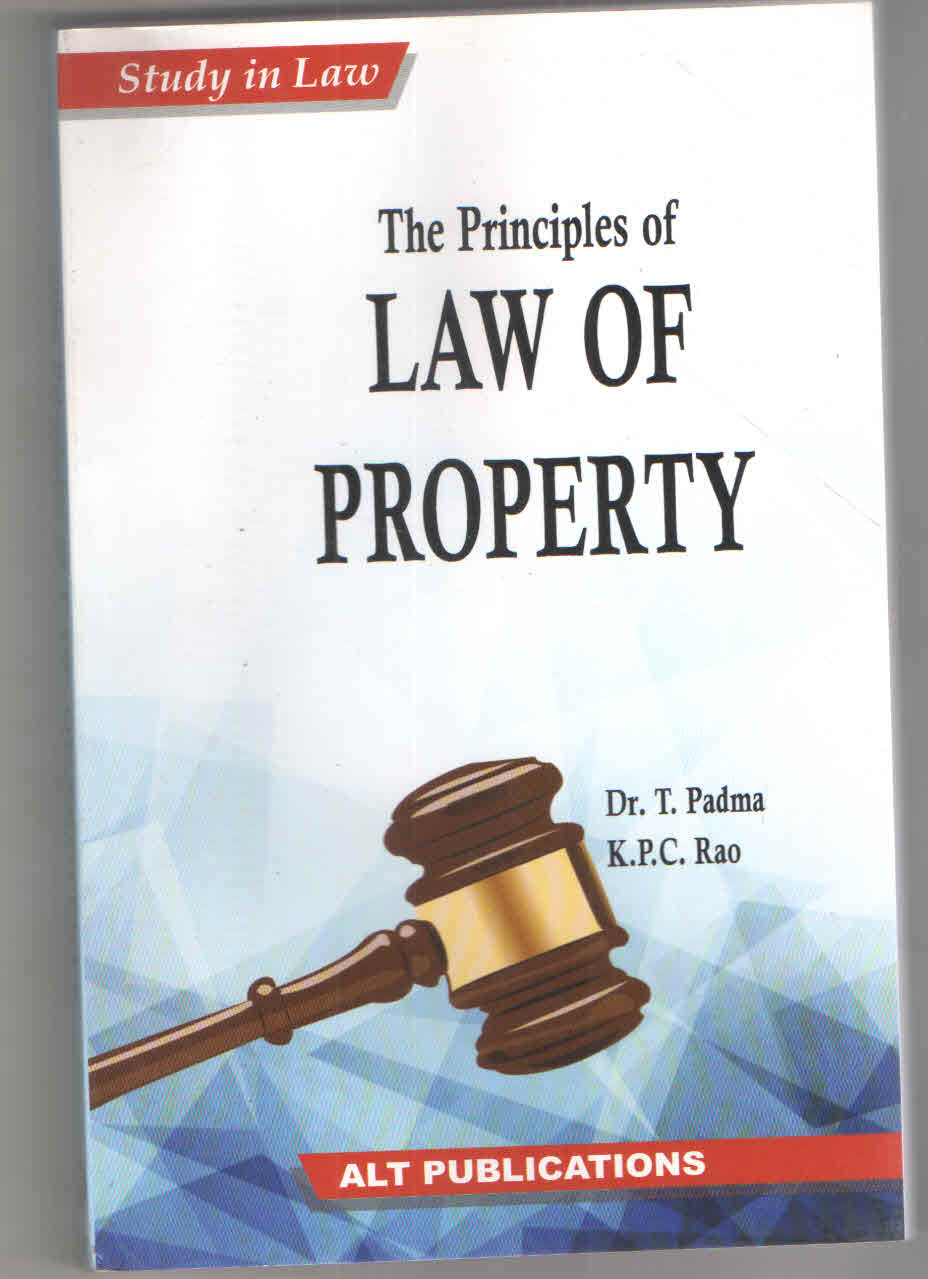‘Property’ is any physical or intangible entity that is owned by a person or jointly by a group of people. Depending on the nature of the property, an owner of property has the right to consume, sell, rent, mortgage, transfer, exchange or destroy their property, and/or to exclude others from doing these things. Important widely recognized types of property include real property (land), personal property (physical possessions belonging to a person), private property (property owned by legal persons or business entities), public property (state owned or publicly owned and available possessions) and intellectual property (exclusive rights over artistic creations, inventions, etc.), although the latter is not always as widely recognized or enforced.
‘Property law’ is the area of law that governs the various form of ownership in real property and in personal property, within the common law legal system. In the civil law system, there is a division between movable and immovable property. Movable property roughly corresponds to personal property, while immovable property corresponds to real estate or real property, and the associated rights and obligations thereon.
‘Right to property’ is also recognised as one of the basic human rights. Article 17 of the Universal Declaration on Human Rights declares that “every one has the right to own property alone as well as in association with others” and that “no one shall be arbitrarily deprived of his property.” Initially the right to property was included in the constitution of India as fundamental right under Article 19(1)(f) and Art.31. But after the amending the Constitution of India, now, the right to property ceased to be a fundamental right but retained as constitutional right under Article 300A.
Indian Property-Law which is substantially codified, is contained in different enactments dating from the year 1882 till this date. The transfer of property Act, 1882 had come into force on the 1st day of July, 1882. Other enactments dealing with this subject are The Contract Act, 1872, Indian Easements Act, 1882, Indian Succession Act, 1925, Hindu Succession Act, 1956, Registration Act, 1908, etc. Prior to 1882, the transfers of immovable properties in India were governed by the principles of English law and equity.
Under the existing law and practice, a property can be transferred by way of a sale, lease, mortgage, gift, exchange and/or Will. Law provides the procedure not only for validly transferring a property but also for reducing the conflicts and confrontations that may crop up between the parties to the transaction.
In this book we have covered the Law relating to transfer of property which deals with legal provisions envisaged under the Transfer of Property Act, 1882, and Law relating to Easements and Wills deals with important and relevant legal information obtained from Indian Easements Act, 1892 and Indian Succession Act, 1925. This book provides a short cut to the students of the 3/5 year law degree course to enable them to get a broad understanding of the topics that would be covered under the revised syllabus with effect from the academic year 2009-2010.
We owe our gratitude to Mr. D. Durga Prasad, LL.B, FCS, for his personal attention, inputs and technical support. Our thanks are also due to Mr. M. Venkateswarlu for his wholehearted and efficient secretarial support in bringing out this Book.
